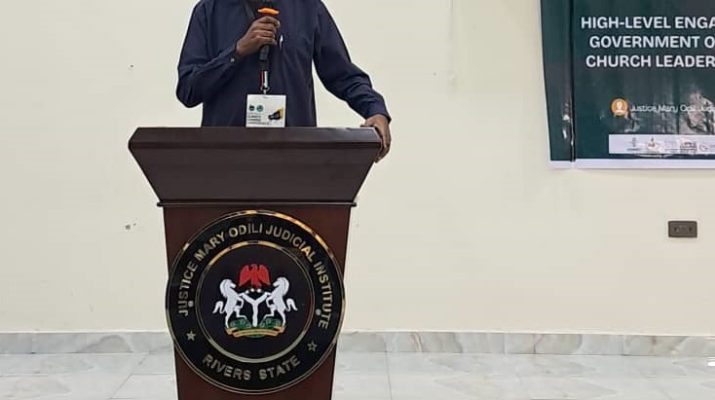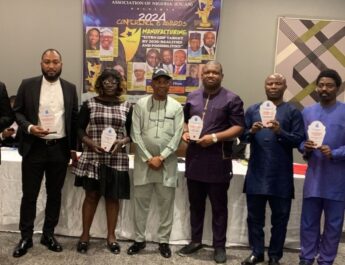Local dwellers in the oil rich Niger Delta region are being turned to the proverbial walking dead as oil exploration activities, spillages and gas flaring continue to devastate host communities in the area with loss of livelihoods and shortened lifespan of residents due to the infusion of hydrocarbons in their blood system
By Edu Abade
As environmental activists continue to agitate for a resilient future through sustainable climate action and community empowerment, a curious dimension is being observed among residents of oil and gas producing host communities manifesting through diseases, shortened lifespan and the discovery of hydrocarbons in the blood stream of local dwellers in the Niger Delta region.
Such agitations and clamour for attention by the host communities, however, have been largely ignored by successive governments that have only been interested in earning petro dollars, while the communities suffer the devastating consequences of fossil fuel exploration.
Foremost environmentalist, Nnimmo Bassey, who spoke on Building a Resilient Future: Climate Action and Community Empowerment at the third Niger Delta Climate Conference in Port Harcourt, Rivers State on Tuesday, July 8, 2025, lamented that the Niger Delta remains a sacrifice zone where anything goes and the people just manage and struggle to survive.
“Those of us who live in the area don’t have to be told about the level of pollution here. The reports are there, the Ogoni report, the Bayelsa report, even the Niger Delta Environment Survey that Shell commissioned in the 90s, but never released, and many others including the one by Kebetkache Women Development and Resource Center, which studied blood samples of women from Otuabagi area and found them all loaded with hydrocarbons. People have literally become the walking dead,” he said.
He explained that building a resilient future entails looking at the environment and examining its state, the living conditions of human beings and others that we share the planet with, stressing that the Niger Delta is a deeply polluted environment, a deeply degraded territory and one of the worst polluted places on the planet.
“Researches have confirmed this sad reality. The Environmental Assessment of Ogoni land issued by United Nations Environment Programme (UNEP) in 2021 clearly shows the desperate pollution of Ogoni land-the land, the, and the air. In some places, hydrocarbons have penetrated the water, soil up to 5 meters. By the time the cleanup started, pollution had sunk as deep as 10 meters.
“In 2023 the Bayelsa State Oil and Environment Commission, issued a report titled: An Environmental Genocide, Counting the Human and Environmental Cost of Oil in Bayelsa. Now, when we speak of environmental genocide, we have to understand this by looking at what genocide means. Genocide is an intentional attack and annihilation of a people, ethnic cleansing. An environmental genocide can also be termed ecocide. It happens when there’s an intentional and persistent destruction of a particular environment, as has been the case of the Niger Delta in the last 68 years,” he stated.
Bassey in his address made available to journalists by Media and Communication Lead of the Health of Mother Earth Foundation (HOMEF), ‘Kome Odhomor, bemoaned the state of the Niger Delta, describing it as a territory in which the inhabitants are literally the living dead due to horrific environmental degradation.
“Consider Bayelsa State that has 40 percent of mangrove forests gone and there is a 1.5 barrels of crude oil spilled per capita. Imagine that about 14 million cubic meters of natural gas is flared every day at 17 facilities in Bayelsa State alone releasing toxic elements into the air and causing cancers, breathing illnesses and acid rain.
“Oil related contaminants such as chromium are present in groundwater at a level 1000 times beyond the World Health Organization’s (WHO) limit and then shockingly, total petroleum hydrocarbons exceed safe levels by a factor of 1 million. Think about that,” he said.
He explained that resilience could be regarded as toughness, strength, tenacity, power and persistence, adding, “Resilience does not equate to being tough to receive any kind of beating. That’s not resilience, just being helpless, but strong. No, resilience is a situation where you overcome hazards, where your vulnerability is removed and disasters are not the norm.
“It’s a situation where what one lost is restored and what was damaged is paid for. To build an excellent future, we have to map that resilient future. We have to change our imaginaries. We have to determine what the future would look like and then we build towards attaining that future. We need to be passionate about this. We need to be conscious of where we are, and act to get to where we want to be.”
According to him, building a resilient future by integrating climate action and community empowerment globally entails adaptation mitigation, pointing out that simply put, adaptation means adapting to changing situations and making accommodation with what is coming at you, while mitigation means taking actions to stop the change from happening or to reduce the change that is occurring.
“When we talk about climate change, sometimes our focus is on the carbon in the atmosphere, but we must also speak about the carbon in the ground that is being extracted and burnt to put that carbon in the atmosphere.
“If we keep looking only into the skies and forget to look at the ground, then of course, we will not really tackle the problem that affects our people on a daily basis. And so we have to look at where the rain started beating us. That deluge drenched us when the first oil well was drilled and exports began in the late 1950s at Otuabagi in the Oloibiri oil field. Now those early oil wells have since been abandoned.
“They were abandoned in the 1970s but they’ve never been decommissioned. The area has never been cleaned up, and as we speak, they are still contaminating the environment, and this happens because of lax regulation. Lax regulation is not accidental, just like ecocide is not happenstance. It’s all about profit for international oil companies and their Nigerian counterparts.
“In November to December 2021 over a period of six weeks, there was an oil blowout on the Santa Barbara River, a well run by Aiteo. That spill all happened in public view. The polluters and NOSDRA claimed that a mere 3,000 barrels of crude oil was spilled. Imagine a spill from a well head at high pressure for six weeks. Experts estimate that about 500,000 barrels of crude oil was spilled in that incident and how about the Ororo-1 oil well, off the coast of Awoye in Ondo State? That oil well blew up five years ago and is still burning and spilling as we speak-a clear indication of systemic neglect,” he stated.
How can we be serious about climate action when we have an oil well burning and spilling crude for five years? He asked, insisting that it’s an open sore, burning, spilling in broad daylight, destroying livelihoods of communities along the coastline of the Niger Delta, especially at the Awoye area. In sum, the Niger Delta is not just a sacrifice zone, it’s a zone that holds the history of colonial exploitation, extractivism, expropriation and extermination of the people on a daily and continuous basis.
Speaking further on community empowerment, he argued that community empowerment would be difficult to attain when perpetrators of environmental degradation are abandoning their responsibilities in the so called divestment moves, maintaining that if the people want real community empowerment, they must take real climate action to avert a continuation of the sacrifice of the zone.
“Gas flaring must be stopped and halted. It’s an illegal activity. It’s a crime against humanity. It’s a crime against the environment, against Mother Earth. It must be stopped. The so called divestment must be started and reversed, it is time to empower the communities and take real climate action by bringing into play community control, renewable energy provision, supporting food sovereignty and building resilient infrastructure.
“In building resilience through climate reparations, it’s time to right the wrongs in terms of energy provision, United States is a very challenged environment, and electricity penetration is very low, and so to reach hard to reach communities, there must be community controlled renewable energy.
“In other words, we have to bring energy democracy to the Niger Delta, so that the people who only see glimpses of light from gas flares would now have electricity with which to engage in productive activities and to light up the territory. Now, the land, the water and the air has been so contaminated, if gas flaring is stopped, pollution is cleaned up, then the people have a chance to engage in agriculture in a way that is resilient and a way that helps tackle global warming, and that would be having food sovereignty with a key focus on agroecology, cultivating crops according in line and in harmony with nature,” he stressed.
“And finally, one clear action that must be taken to build resilience is to encourage community democracy and have community development agencies that are truly driven by the people and not manipulated through a divide and rule system by either the oil corporations or the governments at various levels. We have to work to promote restorative justice.
In other words, communities in Agile data can only be empowered and build resilient future when there is environmental justice.
“Those who cause the most harm must do the most to write those harms, to correct those harms. They have to pay for the harms done. We need ecological justice. We need species justice where we understand that we are not alone on this planet. We’re not alone in Niger, there are other beings that we share the environment with, and they must be intergenerational justice. We have to keep in mind that the future we’re talking about belongs to the children yet unborn, and so what we do now must be such as to ensure that they can have a repaired resilience, strong ecosystems, ecology, systems and a week to thrive,” he concluded.




